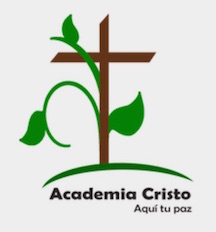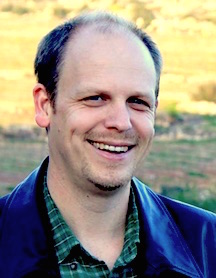Overview of Technology Use in Latin American Missions
by Missionary Mike Hartman
from León, Mexico
from León, Mexico
The challenge
Few places so clearly portray the need for Gospel ministry in Latin America as this display located along the side aisle in the sanctuary of the Our Lady of Guanajuato Basilica in central Mexico:

Below the picture of baby Jesus with an outstretched arm, the words read, Dame una Limosna para embellecer el Santuario de mi MADRE. In English this reads, "Can you spare a dime for my MOTHER'S sanctuary?" In the United States, we're unaccustomed to this type of open idolatry and blatant subservience of Christ. People are typically surprised when they realize how forgotten Christ is in Mexico. Easter is one of the least attended Sundays of the year.
This lack of proclaiming Jesus extends out to the entire Spanish speaking world. Latin America is the region in the world with the least number of Lutherans. One of the key challenges we face in Latin America mission work is quite simply no one knows who we are. When you tell someone you're a Lutheran, you usually receive a confused look from a person who responds along the lines of "Are you Mormons?"
The Opportunity
The dot com boom that happened in the United States in the late 90s and early 2000s didn't happen then in Latin America. It is happening now. According to CNBC Latin America is the most booming smartphone market in the world. It is even ahead of China. As Smartphone use skyrockets, more people are getting onto the Internet for the first time. As Latin America connects, it shrinks. Social media fits extremely well into Latin American cultures. Brazil is the largest country in Latin America, and Brazilians spend more time on social media than anyone else in the world. Mexico's engagement on video ads is almost four times greater than the rest of the world. These snapshots [for references see below] help demonstrate the opportunity that exists to use new daily means of communication to share the Gospel in Latin America.
The Launch
In February 2015, WELS world missions launched the new website: academiacristo.com. The Internet is full of Christian websites. Academia Cristo was blessed with a special opportunity. Since the 1970s WELS Multi- Language Publications (MLP) has published the bi-monthly Spanish newsletter El Mensajero Luterano (The Lutheran Messenger). In 2014 MLP made the decision to make the magazine completely digital. The funds used to print and mail 1,800 copies of the magazine six times a year were repurposed and used to promote Academia Cristo online.

Initially the mission team contracted a Latin American advertising company and began promoting the website on Google Adwords and YouTube. We were able to reach a decent audience, but nothing compared to when we began to promote on Facebook. For the cost of producing and distributing one DVD copy of the My Son, My Savior movie, we were able to get 54 people to download a copy of the movie.
We did this by promoting both the Academia Cristo website and Facebook page itself. In ten and a half months the Academia Cristo Facebook page grew to +191,000 Followers. Facebook page posts organically now reach nearly 1 million users a week. A recent sampling of posts show that 45.7% of that reach is to people who are not fans of the page. According to Facebook's statistics, Academia Cristo's Facebook page has one of the highest engagement percentage rates of any Christian Facebook page in the world. This means people are interested in the page and sharing the posts with others.
Making the Connection Personal
It is one thing to make a lot of noise on the Internet, but our goal is to proclaim a clear Gospel message in a way that leads to establishing personal connections. In order to do this, we use a Live Chat feature on the Academia Cristo website. When you visit the website you can chat in real time with someone connected to our ministry. Those people are able to answer questions and connect interested people with real people serving in the country where they are located. Additionally, we invite people to join an Academia Cristo WhatsApp group. By God's grace these forms of online ministry have led to over 50 people who are currently studying weekly online Bible courses with us. These online ministries have also led to on-the-ground ministry efforts and connections in countries such as Mexico, Colombia and Venezuela.
http://www.cnbc.com/2015/02/17/latin-america-is-the-fastest-growing-smartphone-market.html
http://techcrunch.com/2015/04/07/understanding-tech-penetration-in-latam/
http://www.millennialmedia.com/mobile-insights/blog/cinco-de-mobile-a-snapshot-of-mexican-mobile-data
How I Use Social Media as a Tool to Evangelize
by Claudia Baltazar,
from El Paso, Texas, USA
from El Paso, Texas, USA
Social media is so prevalent in today's society that it seems that any organization or person wanting to advertise anything should consider social networks a must. Most social network forums and websites have applications and are so easily accessible making their product or website known and reaching broader audiences. I started working with Facebook a couple of months after being hired with Multi-Language Publications. My job was to manage the El Mensajero Luterano Facebook page. I would post their meditations and announce any material that was new to the website such as the bi-monthly magazine along with inspirational text or personal testimonies of faith.
I have to admit that initially I really had no direction; I used a program called Snagit that is a very limited photo editor. I would take free stock images from an online website called Morguefile.com and I would write on the image either a Bible verse, part of a devotion, or something that I heard from a sermon. We then began working with Academia Cristo, and the job entailed more or less the same; we wanted to advertise and direct our followers to the website to take advantage of our free resources and most importantly use social media as a tool to evangelize.
Pastor Mike Hartman set up a training session for our team with Pravia, an online advertisement company in Mexico. They provided useful information and resources, which I use today. Since we are an organization, all of our images must be free or we must have permission to use them. There are plenty of websites from which to obtain images but the main three that I use are Morguefile, Pixabay, and Unsplash. The photo editor I use is Canva, an online website where you can create designs to use on your website. Canva has many features and is very user friendly. They provide free templates, layouts, pictures to use, and some are available for a low cost. I normally create and post 6 images daily for 2 different Facebook pages.
My personal experience using Facebook as a tool to evangelize has proven to be effective. I have received messages from friends and family who have gone through trying situations and thank me for something I said that resonated with them. The use of it at work for the same purpose has created a doorway to reach hundreds of people at once with the message of Jesus Christ with just a click of a button.
Uso del Whatsapp en el Evangelismo
by Henry Hererra
from Medellín, Colombia
from Medellín, Colombia
[English translation below]
Después de lo que sucedió en la torre de Babel como lo vemos en Génesis 11:9 Por esto fue llamado el nombre de ella Babel, porque allí confundió Jehová el lenguaje de toda la tierra, y desde allí los esparció sobre la faz de toda la tierra. Vemos que la comunicación para el hombre empezó a cambiar desde ese momento, ellos se pusieron de acuerdo por tener un mismo idioma para hacer esta torre y alcanzar a Dios pero llego un momento que ya no se podían comunicar entre sí porque Dios mismo les cambio a cada uno de ellos su idioma y como consecuencia de esto la comunicaciún entre ellos mismos era más difícil. Aunque tenemos muchos idiomas en el mundo como consecuencia de lo que sucedió en Babel, algunos dicen que más o menos existen 6.000 idiomas, vemos que todos los seres humanos siempre están buscando la manera de comunicarse unos a otros no importando los idiomas, los países donde se vive, la raza o estado económico y es por esto que existen las redes sociales que tienen el objetivo de comunicar las personas no importando las distancias, el hombre podrá pensar que él mismo fue quien creo esto pero en realidad es Dios mismo quien controla el mundo y ha permitido que existan estas redes sociales, esto mismo lo enseña 1 Crónicas 29:11 Tuya es, oh Jehová, la magnificencia y el poder, la gloria, la victoria y el honor; porque todas las cosas que están en los cielos y en la tierra son tuyas. Tuyo, oh Jehová, es el reino, y tú eres excelso sobre todos. Pero sabemos por la Biblia que el Diablo anda como un león rugiente buscando a quien devorar 1 Pedro 5:8 y el aprovecha toda oportunidad en la que pueda meterse y él se mete en las redes sociales para que el hombre sea tentado por el pecado y ya sabemos de historias que hay matrimonios que se han terminado, empleos que se han perdido, amistades que han terminado por unas fotos o mensajes pecaminosos enviados por el WhatsApp a otra persona, hoy en día ya le han dado el término de sexting que es un anglicismo para referirse al envío de contenidos eróticos o pornográficos por medio de teléfonos móviles.
Pero es ahí donde Dios nos usa para que seamos luz como lo enseña el evangelio de Mateo 5:14-16 Ustedes son la luz del mundo; una ciudad asentada sobre un monte no se puede esconder. Ni se enciende una luz y se pone debajo de un almud, sino sobre el candelero, y alumbra a todos los que están en la casa. Así alumbre vuestra luz delante de los hombres, para que vean vuestras buenas obras, y glorifiquen a vuestro padre que está en los cielos. La manera que somos luz delante de los hombres es usando las redes sociales y en especial el WhatsApp para expandir el evangelio de Nuestro Señor Jesucristo, es una manera de aplicar lo que nos enseña Santiago 4:7 Someteos, pues, a Dios; resistid al diablo, y huirá de vosotros. La manera que Dios nos usa para que el Diablo huya de nosotros e igualmente ayudemos a otras personas para que también estén libres del Diablo es por medio de los grupos de WhatsApp que actualmente existen. Manejo tres grupos de WhatsApp y alrededor de 15 personas a parte de los grupos los cuales se comparten diariamente devocionales diarios y hemos estudiado algunos temas bíblicos por este medio como la vida de Santificación, la Ley y el Evangelio, libro de Rut, el evangelio de Juan y actualmente estamos estudiando el libro de Proverbios. Los tres grupos que tenemos están organizados de la siguiente manera: Familia Luterana está conformado por personas que son miembros comulgantes de nuestras distintas obras donde tenemos hermanos de Chile, México, República Dominicana, Estados Unidos, Colombia, Inglaterra, España, Francia, Argentina y Perú. Este grupo también lo usamos para expresarnos saludos y felicitarnos en los días de nuestros cumpleaños como pruebas de compañerismo.

[translation by Kerry Pamperin]
There is where God uses us to be the light, as the gospel of Matthew 5:14-16 teaches us You are the light of the world. A town built on a hill cannot be hidden. Neither do people light a lamp and put it under a bowl. Instead they put it on its stand, and it gives light to everyone in the house. In the same way, let your light shine before others, that they may see your good deeds and glorify your Father in heaven. The way in which we are the light before men is using social networks and especially WhatsApp to spread the gospel of our Lord Jesus Christ. It's a way to apply what James 4:7 teaches us Submit yourselves, then, to God. Resist the devil, and he will flee from you. The way God uses us so that the devil will flee from us and in the same way to help others so that they can be free from the devil is through currently existing WhatsApp groups. I manage three WhatsApp groups and about 15 people apart from the groups. I share daily devotions and we have studied some Biblical themes through this means such as the life of sanctification, the law and gospel, the book of Ruth, the gospel of John and currently we are studying the book of Proverbs. The three groups that we have are organized in the following way: Lutheran Family is made up of people who are communicant members of our distinct ministries where we have brothers and sisters from Chile, Mexico, the Dominican Republic, the United States, Colombia, England, France, Argentina and Peru. We also use this group to send greetings and congratulations on birthdays as evidence of fellowship.
The other group we have is called Confessional Lutherans which is made up of leaders in Latin America and in the same way we communicate amongst ourselves and share Biblical messages. The final group we have is very connected to the evangelism work we are doing with Academia Cristo and this group is called Christ Lutheran Church in which we have people from various countries and denominations. But nine groups break off from this group in addition to those which other brothers and sisters in the faith are leading, such as the students of Martin Luther College. Through this last group I mentioned we reach people with the Word of God, teaching them the difference between wholesome and false doctrine. We also invite them to visit Academia Cristo for their studies and we are learning about the false doctrines many of them profess in order to get ideas for future studies and also to defend the faith at certain times. In these three groups we currently have 173 people to whom we are teaching wholesome doctrine and many of them are already solid contacts in order to begin new labors or to have preaching stations. We pray to our God that he maintain us in the unity of the true faith and that we continue to use social networks to be the light to all nations.
Supervising Academia Cristo's WhatsApp Groups to Nurture New Believers
by Paul Bourman
from New Ulm, Minnesota, USA
from New Ulm, Minnesota, USA
[WhatsApp groups are integral to the Latin American mission effort surrounding Academia Cristo and Iglesia Cristo. Their role is to create a personal connection with those newly interested in the Faith, answering questions, reminding of events, posting daily devotions, and guiding their progress and learning. Each of the current nine groups is led by a maestro (a moderator, most of them Martin Luther College students) and contains a couple dozen new contacts along with some others including pastors and students. Mr. Bourman facilitates the groups by sorting contacts into the various groups and encouraging the moderators. — the editors]
Being a leader of one of Academia Cristo's WhatsApp groups has been an edifying experience for me. Very often there is something new to understand and struggle with as members of the groups ask insightful questions, ask for prayers, and share details of their lives to discuss. This seeming haphazardness keeps me as a leader on my toes, yet it is consistency that I strive for as the general environment of the group. Every day I, or another member of my group, post the devotion Pastor Herrera has written for the day. This is almost always met with "Amens" and other prayerful emoticons, which let me know that the devotions are being read. This along with the members' posts keeps the message board quite active. I think that this activity is good for keeping people tuned in as they check their phones, but it is not overwhelming to them to the point that they leave the group.
The groups have been met with challenges though. The biggest challenge facing us may be the follow through of these groups. The ultimate goal for our WhatsApp groups, beyond the growing of faith as we share a community with believers around the globe, is to identify leaders and to link up these leaders with pastors as local as they can be. However, to my knowledge, this has not quite been happening yet. This may be due to a lack of motivation by the leaders of the groups who in their third or fourth month are in need of encouragement to keep a good faith effort.
These WhatsApp groups are powerful tools that have certainly been used to God's glory over the last few months. In the coming months, during the spring semester at Martin Luther College, many of the leaders will be enrolled in a class that will feature their WhatsApp groups, they will learn more of the vocabulary they need, and they will be encouraged as they feel more confident in their own skills.
The immediacy of technology has created a community of believers who are able to pray with each other, and be part of each other's lives although we are spread thin across more than one continent. Through WhatsApp we are able to send a daily dose of the Gospel to a growing number of people. May the Holy Spirit continue to work through it!



